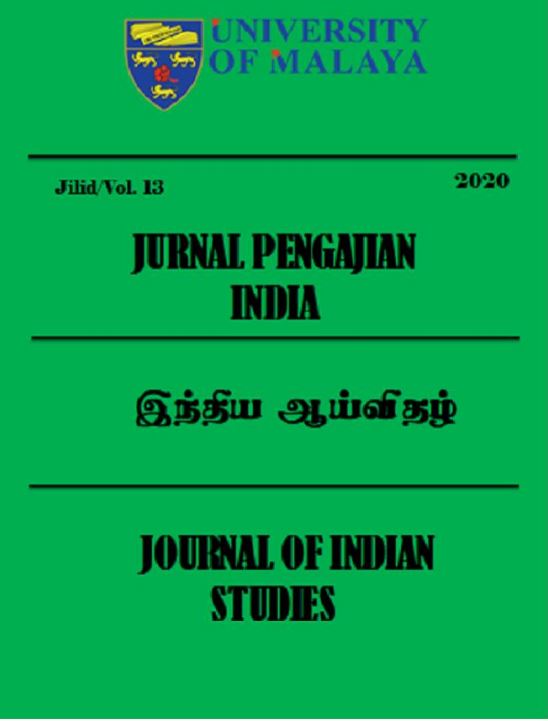அண்மைக்கால மலேசியத் தமிழ்ச் சிறுகதைகளின் செல்நெறிகள் (Trends of recent Malaysian Tamil short stories)
Keywords:
Short Story Cells, Recent Creative Field, Malaysian Tamil, Contemporary, Postmodernism, சிறுகதை செல்நெறிகள், அண்மைக்காலப் படைப்புலகம், மலேசியத் தமிழர், சமகாலம், பின் நவீனத்துவம்Abstract
The Malaysian Tamil creative field has continued its journey since 1800 by absorbing many trends in many forms such as poetry, short story, novel, renewal poem, haiku poetry. In the early days, poems were sung extensively on the theme of deity and temples etc. At the same time, it did not fail to bring into poetry to cover some of the events that took place in the contemporaries, especially to elaborate the social milieus and challenges that took place in the society. Short stories have touched these issues as well, widely. Short stories can be accepted as a historical document that reflects the life of Malaysian Tamils. Early day writers have touched about many issues as such, i.e. including the atrocities of the Japanese regime, the job losses on the plantations and the unsustainable living conditions, citizenship issues, Tamil education issues, the problems of counterfeit liquor, the problems with the red identity cards, the expulsion of workers from the plantations and the eviction of workers from the outlying settlements due to the development projects. Similarly, the novels also have extensively documented the lives of Malaysian Tamils. When way of life of Malaysian Tamils began to change in the 1990s, where the community once begun to live in the plantations under the bureaucracy, were forced into a new environment, in which no one had to lead a socially independent life. The Tamil community lived in a vicious circle, trapped in complex plantations and unable to escape poverty. This, in turn, forms the subject matter and new trends of today's creative forms. At the same time, works were created to adapt these new lifestyles to post-modernist principles. These were the topic that were touched in this article.
மலேசியத் தமிழ்ப்படைப்புலகம் 1800 தொடங்கி, கவிதை, சிறுகதை, நாவல், புதுக்கவிதை, ஹைக்குக் கவிதை, எனப் இன்றும் பல போக்குகளை உள்வாங்கித் தொடர்ச்சியாகத் தனது பயணத்தைத் தொடர்கின்றது. தொடக்கக் காலங்களில் தெய்வம் மற்றும் ஆலயங்கள் முதலானவை கருப்பொருள்களாகக் கொண்டு கவிதைகள் பெருமளவில் பாடப்பட்டன. அதே வேளையில் சமகாலத்தில் நடந்த சில நிகழ்வுகளையும், சமூகத்தின் அவலங்களையும் சமூகச்சவால்களையும் கவிதைகளின் பாடுபொருளாக கவிதைகளுக்குள் கொண்டுவரத் தவறவில்லை. மலேசியத் தமிழர்களின் வாழ்வியலைப் பிரிதிபலிக்கக் கூடிய வரலாற்று ஆவணமாகவே சிறுகதைகளை ஏற்றுக்கொள்ள அளவிற்கு எல்லாச் சூழல்களிலும் சமூகம் கடந்து வந்த பாதையைச் சிறுகதைகள் தங்கள் கருப்பொருள்களாகக் கொண்டுள்ளன. இதுவே, ஒரு செல்நெறியாகவும் உருவானது. தொடக்கக் காலங்களில் சஞ்சிக் கூலிகளாக வாழ்ந்த வாழ்க்கை, ஜப்பானியர் ஆட்சிக்கால கொடுமைகள், தோட்டங்களில் வேலை இழந்த சூழலும் நிருகதியற்ற வாழ்க்கையும், குடியுரிமை சிக்கல்கள், தமிழ்க்கல்விப் பிரச்சினைகள், கள்ளச்சாராயத்தின் கொடுமைகள், சிவப்பு அடையாளயட்டைப் பிரச்சினைகள், மேம்பாட்டுத் திட்டங்களால் தோட்டங்கள் எடுக்கப்பட்டு தொழிலாளர்கள் புறம்போக்குக் குடியிருப்புகளுக்கு விரட்டப்பட்ட நிலை, இன்றைய அடுக்குமாடி வீட்டு புறாக் கூண்டு வாழ்க்கை என மலேசியத் தமிழர்கள் கடந்து வந்த பாதையை நிரலாக சிறுகதைகள் பேசி வருகின்றன. இதுபோன்றே, நாவல்களும் மலேசியத் தமிழர்களின் வாழ்க்கையை விரிவாக ஆய்ந்து பதிவுசெய்துள்ளன. அதே வேளையில் 1990-களில் மலேசியத் தமிழர்களின் வாழ்க்கை முறையானது ஒரு மாறுதல்களைச் சந்திக்க துவங்கியது. தோட்டப்புறங்களில் சிக்கலான கட்டுக்குள் சிக்கி, வறுமைச் சூழலுக்குள் அகப்பட்டு வெளிவர முடியாமல், ஒரு சுற்று வட்டத்தில் தமிழ்ச்சமூகம் வாழ்ந்து வந்தது. இதுவே, இன்றைய படைப்பிலக்கிய வடிவங்களின் பாடுபொருள்களாகவும் புதிய போக்குகளாகவும் அமைகின்றன. அதே வேளையில் இந்தப் புதிய வாழ்க்கைமுறைகளைப் பின்னை நவீனத்துவக் கோட்பாடுகளை ஒட்டியும் படைப்புகள் படைக்கப்பட்டன. இக்கட்டுரையில் இந்தச் செய்திகளே சாரங்களாக அமைகின்றன.

